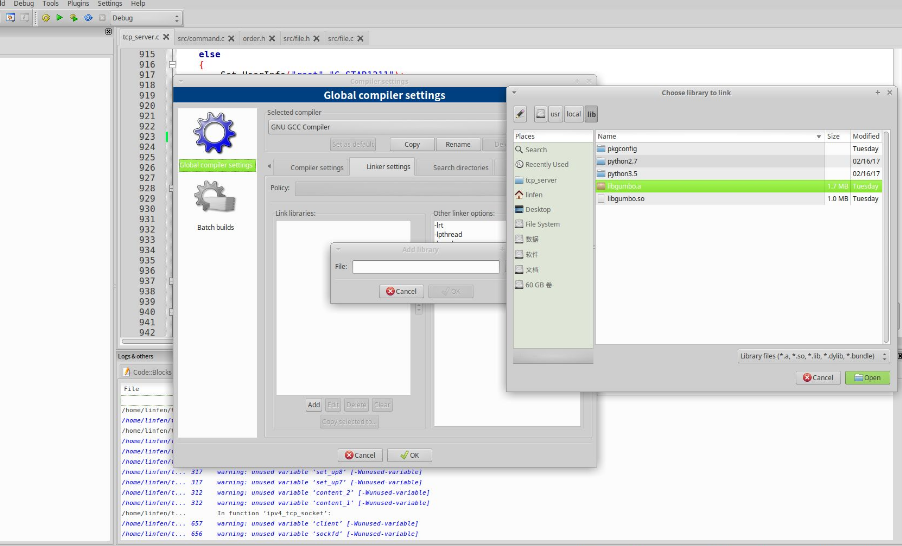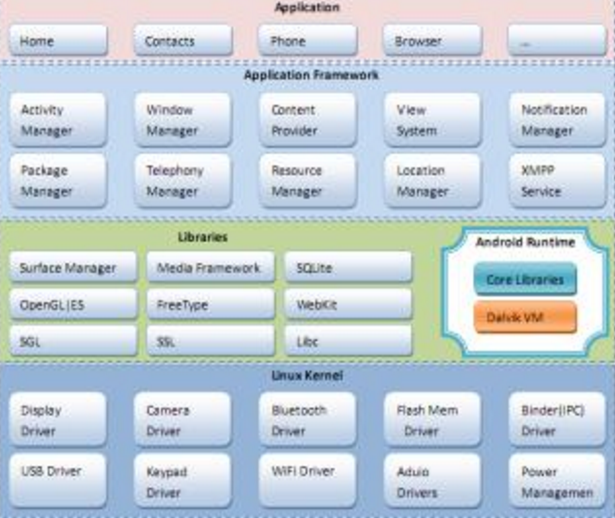In programming, functions written by some commonly used function modules are often placed in the function library for public selection, generally called standard functions. A program is composed of several program modules. The high-level language has the concept of a subroutine. The function of the subroutine is implemented by a function. The C++ standard library provides a scalable, fundamental framework for C++ programmers. We can get great convenience from it, and we can extend it by inheriting existing classes and compiling containers, algorithms, and iterators that conform to the interface specification.
Basically maintained a good compatibility with the original C language library, although slightly changed. There are two sets of C libraries in the C++ standard library, one with a .h extension (such as "stdio.h") and the other without (such as "cstdio"). In fact they are not much different.
An important part of STL, it contains about 70 general-purpose algorithms for manipulating various containers, as well as manipulating built-in arrays. For example: find is used to find elements in the container equal to a specific value, for_each is used to apply a function to each element in the container, and sort is used to sort the elements in the container. All of these operations are performed with guaranteed execution efficiency, so if the program becomes inefficient after you use these algorithms, first of all, don't doubt the algorithms themselves, and check the rest of the program.

The C language compilation system provides a number of predefined library functions and macros. These library functions and macros can be called directly by the user while writing the program. Here I chose some library functions commonly used by beginners, and briefly introduced the usage of each function and the header file.
Test function
Isalnum
Prototype: int isalnum(int c)
Function: Test whether the parameter c is a letter or a number: Yes, return non-zero; otherwise return zero
Header file: ctype.h
Isapha
Prototype: int isapha(int c)
Function: Test whether parameter c is a letter: Yes returns non-zero; otherwise returns zero
Header file: ctype.h
Isascii
Prototype: int isascii(int c)
Function: Test parameter c is ASCII code (0x00~0x7F): Yes, return non-zero; otherwise return zero
Header file: ctype.h
Iscntrl
Prototype: int iscntrl(int c)
Function: Test whether the parameter c is a control character (0x00~0x1F, 0x7F): Yes, return non-zero; otherwise return zero
Header file: ctype.h
Isdigit
Prototype: int isdigit(int c)
Function: Test whether parameter c is a number: Yes returns non-zero; otherwise returns zero.
Header file: ctype.h
Isgraph
Prototype: int isgraph(int c)
Function: Test whether the parameter c is a printable character (0x21~0x7E): Yes, return non-zero; otherwise return zero
Header file: ctype.h
Islower
Prototype: int islower(int c)
Function: Test whether the parameter c is lowercase: Yes, return non-zero; otherwise return zero
Header file: ctype.h
Isprint
Prototype: int isprint(int c)
Function: Test whether parameter c is a printable character (including space character 0x20~0x7E): Yes, return non-zero; otherwise return zero
Header file: ctype.h
Ispunct
Prototype: int ispunct(int c)
Function: Test whether parameter c is punctuation: yes, return non-zero; otherwise return zero
Header file: ctype.h
Isupper
Prototype: int isupper(inr c)
Function: Test whether the parameter c is in uppercase letters: yes, return non-zero; otherwise return zero

Isxdigit
Prototype: int isxdigit(int c)
Function: Test whether the parameter c is a hexadecimal number: yes, return non-zero; otherwise return zero
2. Mathematical functions
Abs
Prototype: int abs(int i)
Function: return the absolute value of the integer parameter i
Header file: stdlib.h, math.h
Acos
Prototype: double acos(double x)
Function: Returns the inverse cosine trigonometric function value of the double precision parameter x
Header file: math.h
Asin
Prototype: double asin(double x)
Function: Returns the inverse sine trigonometric value of the double precision parameter x
Header file: math.h
Atan
Prototype: double atan(double x)
Function: return the inverse tangent function value of the double precision parameter
Header file: math.h
Atan2
Prototype: double atan2(double y, double x)
Function: Returns the arctangent trigonometric function value calculated by the formula y/x for the double precision parameters y and x
Header file: math.h
Cabs
Prototype: double cabs(struct complex znum)
Function: Returns a double precision value to calculate the absolute value of the complex number znum. The structural pattern of the Complex is defined in math.h and is defined as follows:
Struct complex {
Double a,y
};
Header file: stdlib.h, math.h
Ceil
Prototype: double ceil(double x)
Function: return the smallest integer not less than the parameter x
Header file: math.h
_clear87
Prototype: unsigned int _clear87(void)
Function: Clear floating point operator status word
Header file: float.h
_control87
Prototype: unsigned int _control87(unsigned int newvals,unsigned int mask)
Function: Get or change the floating point operator control word
Header file: float.h
Cos
Prototype: double cos(double x)
Function: return the cosine function value of the parameter x
Header file: math.h
Cosh
Prototype: double cosh(double x)
Function: return the hyperbolic cosine function value of the parameter
Header file: math.h
Ecvt
Prototype: char*ecvt(double value, int ndigit, int*decpt, int*sign)
Function: Convert the double-precision value to a string of ndigit digits ending with a space character, decpt points to the decimal point position, and sign is the symbol mark. The return value of the function is a pointer to the converted string.
Header file: stdlib.h
Exp
Prototype: double exp(double x)
Function: return the exponential function value of the parameter x
Header file: math.h
Fabs
Prototype: double fabs(double x)
Function: return the absolute value of the parameter x
Header file: math.h
Floor
Prototype: double floor(double x)
Function: return the largest integer not greater than the parameter x
Header file: math.h
Fmod
Prototype: double fmod(double x, double y)
Function: Calculate the remainder of x/y. The return value is the remainder value sought
Header file: math.h
_fprest
Prototype: void _fprest(void)
Function: Reinitialize floating point math package
Header file: float.h
Frexp
Prototype: double frexp(double value, int*eptr)
Function: Decompose the double precision function value into a mantissa and an exponent. The function returns the tail value, and the index value is stored in the unit pointed to by eptr.
Header file: math.h
Hypot
Prototype: double frexp(double x, double y)
Function: Returns the bevel length of a right triangle calculated by the parameters x and y
Header file: math.h
Labs
Prototype: long labs(long n)
Function: return the absolute value of the long integer parameter n
Header file: stdlib.h
Ldexp
Prototype: double ldexp(double value, int exp)
Function: return the value of value*2exp
Header file: math.h
Log
Prototype: double log(double x)
Function: Returns the value of the natural logarithm (ln x) of the parameter x
Header file: math.h
Log10
Prototype: double log10(double x)
Function: Returns the value of the natural logarithm (lg x) of the parameter x in base 10.
Header file: math.h
Modf
Prototype: double modf(double value,double*iptr)
Function: Divide the double precision value into an integer part and a fractional part. The integer part is stored in iptr, and the fractional part is used as the return value of the function.
Header file: math.h
Poly
Prototype: double poly(double x, int n, double c[ ])
Function: Generate an nth degree polynomial of x according to the parameter, and its coefficients are c[0], c[1], ...c[n]. The function returns the value of the polynomial given the value x
Header file: math.h
Pow
Prototype: double pow(double x, double y)
Function: return to calculate the value of xy
Header file: math.hpow10
Prototype: double pow10(int p)
Function: return to calculate the value of 10p
Header file: math.h
Rand
Prototype: int rand(void)
Function: Random function, returns a random integer ranging from 0 to 215-1
Header file: stdlib.h
Sin
Prototype: double sin(double x)
Function: return the sine function value of the parameter x
Header file: math.h
Sinh
Prototype double sinh(double x)
Function: return the hyperbolic sine function value of the parameter x
Header file: math.h
Sqrt
Prototype: double sqrt
Function: return the square root value of the parameter x
Header file: math.h
Srand
Prototype: void srand(unsigned seed)
Function: Initialize random function generator
Header file: stdlib.h
_status87
Prototype: unsigned int_status87()
Function: take floating point status
Header file: float.h
Tan
Prototype: dounle tan (double x)
Function: return the tangent function value of the parameter x
Header file: math.h
Tanh
Prototype: double tan(double x)
Function: return the hyperbolic tangent function value of the parameter x
Header file: math.h
Fully Transparent Liquid Crystal Display
Fully Transparent Liquid Crystal Display,Industrial Instrument Lcd Display,Household Appliances Lcd Display,Fire Facility Instrument Display
Dongguan Yijia Optoelectronics Co., Ltd. , https://www.everbestlcdlcm.com